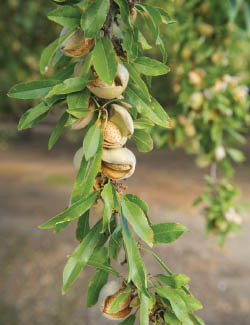Soil & Sea: reports from our producers
This article was originally published in March 2015

California almonds, pistachios and walnuts are becoming so lucrative that big investment funds, eager to take part in the boom, are snapping up land and planting trees.
It takes a gallon of water to produce a single almond — more than three times the amount required for a grape and two and a half times as much for a strawberry. In fact, almonds are one of California’s thirstiest crops, a major concern given California’s ongoing drought.
The U.S. Department of Agriculture Says the average price for a dozen eggs in California is $3.16, up from $1.18 a year ago. The cause is an initiative passed by California voters in 2008, into effect since January, requiring eggs sold in the state to come from farms using cages almost twice the size of the industry norm. Some farmers are passing the added costs of production on to consumers, while others are culling their flocks. Egg shortages have been reported.
A study by Stanford researchers presents a more sustainable alternative to the current practice of using wild-caught fish to feed farm-raised fish. The researchers propose recycling the waste byproducts from seafood processing plants across China. This waste, which can be 30 to 70 percent of the incoming volume of fish, often is discarded or discharged into nearby waters. The team’s analysis shows that these processing wastes could satisfy between half and two-thirds of the current volume of fishmeal used by Chinese fish farmers.
The world’s first investment fund focused on “sustainable” aquaculture, Aqua-Spark, wants to aid businesses committed to producing “safe” farmed fish that “does not harm the health of the planet.” The first two recipients of funds include a California-based biotech company making a fishmeal substitute and a tilapia operation in Mozambique that the fund hopes will be a model fish farm for sub-Saharan Africa.
